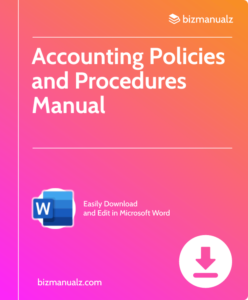What is the Difference Between Bank Balance and Book Balance?

Imagine you’re at the bank. You’re ready to withdraw cash. When you get to the counter, you notice two balances. Bank Balance and Book Balance. It’s confusing. But don’t worry! This article explains the difference. What is the difference between bank balance and book balance?
Bank Balance vs Book Balance
Bank Balance is the amount of money in your bank account. It’s what the bank says you have. Book Balance is the amount of money in your records. Like your check register or accounting system. Why is there a difference? Timing is one reason. If you deposited a check, but it hasn’t been processed, your book balance will be higher than your bank balance.
Outstanding checks and payments also cause a difference. These take time to go through and show up in both balances.
Electronic banking makes a difference too. With online banking and automatic bill payments, keep track of pending transactions that haven’t been deducted yet.
Errors can cause disparities too. Regularly reconcile these balances for accurate financial management.
Investopedia says: discrepancies between bank balance and book balance have led to financial issues if not addressed quickly.
Explanation of Bank Balance
Bank balance is the amount of money in an account at any given time. It reflects actual funds one can withdraw or use for transactions. This balance is updated by the bank depending on deposits, withdrawals, and other transactions.
Knowing bank balance is important as it shows the financial state of an account holder. It helps in making decisions on expenses, investments, and savings. It provides individuals and businesses with an understanding of their financial resources.
Bank balance can differ from the book balance kept by the account holder. Book balance is the money recorded in accounting records. This includes income, expenses, liabilities, assets, etc.
A difference between bank balance and book balance can occur due to timing differences. For instance, a check written by an account holder may take days to clear and be reflected in the bank balance but would already be recorded in the book balance. Other factors that can cause this difference include outstanding checks, deposits in transit, or errors.
To prevent discrepancies, it is essential to reconcile these balances regularly. Reconciliation involves comparing the transactions recorded in books with those reported by the bank. Any discrepancies should be identified and fixed quickly.
Explanation of Book Balance
Book balance is the amount of money a company’s financial records record. It’s the balance seen on paper or accounting systems, without pending transactions or discrepancies. This balance includes all deposits and withdrawals, regardless of if they’re cleared or not.
Bank balance, however, is the actual amount of money in an account from the bank’s view. It considers all cleared transactions like deposits, withdrawals, and fees.
The difference between book and bank balance can come from many sources. This might be from outstanding checks, deposits in transit, errors, or even fraud. So, it’s key for businesses to reconcile these balances often.
By comparing book and bank balance and spotting discrepancies fast, companies can guarantee correct financial reporting. Skipping this could mean lost investment chances or payments made on wrong info.
For financial security and smart decisions, businesses should prioritize reconciling book and bank balance regularly. This helps ensure transparency and avoid any financial risks from inaccurate recording or reconciliation errors.
Make sure your business doesn’t suffer from contrasting balances! Take the reins today by making sure your book and bank balance are synced. Stay alert in keeping accurate records and protect your financial future.
Differences Between Bank and Book Balance
Bank Balance and Book Balance are two accounting terms used to describe a company’s financial position. Both mean the amount of money a company has, but they are different. To explain this, let’s look at a table:
| Bank Balance | Book Balance |
|---|---|
| $10,000 | $9,500 |
The bank balance stands for the money in a company’s bank account. This includes all deposits and checks cleared by the bank. The book balance is the amount of money tracked in a company’s accounting books. This includes not only the actual cash, but also any checks or deposits that haven’t been processed yet by the bank.
It’s important to note that the bank balance and book balance can be different due to timing issues. For example, if a customer writes a check that hasn’t been cashed yet, it would be in the book balance but not in the bank balance.
Tip: Comparing bank and book balances often can help find errors or fraud and guarantee accurate financial reporting.
Importance of Reconciling Bank Balance and Book Balance
Reconciling bank balance and book balance is a must for accurate finances. Discrepancies can bring serious issues like wrong financial statements and possible legal problems. Comparing bank transactions and recorded book transactions helps identify errors or fraud, and allows quick action to fix the issue. It also shows cash flow and helps make smart financial decisions.
It also gives transparency and accountability within an organization. It shows any differences in records, like missing deposits or unapproved transactions. This stops theft or misuse of funds by keeping a clear record of all money matters. Regular reconciliation helps keep trust with stakeholders and shows commitment to responsible financial management.
Reconciling bank balance and book balance is also key for financial planning and budgeting. Accurate financial records enable businesses to forecast future cash flows well, make strategic investments, and plan for possibilities. Without proper reconciliation, businesses may not know how much money they have, leading to wrong budgets and bad decisions.
For this reason, all businesses need to reconcile their bank balance and book balance often. Not doing so can lead to bad results like incorrect tax filings, missed chances for growth, or even bankruptcy. But with proper reconciliation practices, businesses can evade these troubles and protect the integrity of their financial records.
Challenges in Maintaining Accurate Balances
Accurate balances can be a tricky thing for banks. Complex financial transactions and the need for precise record-keeping both contribute to this.
- 1. Reconciling bank balance and book balance is tough. Bank balance is the cash held in an account while book balance is the amount the bank records. Differences between these can come from timing or errors in recording.
- 2. Tracking multiple accounts makes it even harder. Banks often have savings, checking, and investment accounts – managing and reconciling each one is complex.
- Lasty, fraud complicates accurate balances. Unauthorized transactions, identity theft, and cyber attacks all put bank and book balance at risk. So, security measures and monitoring are essential.
Plus, data accuracy across different banking systems is critical. This means smoothly integrating internal and external systems.
Tips for Ensuring Accurate Bank and Book Balances
To ensure smooth financial operations, it’s vital to keep accurate bank and book balances. Here are some tips:
- Reconcile regularly: Compare your bank statement and accounting records to identify any discrepancies.
- Record promptly: Log all transactions in your books as soon as they happen, to keep up-to-date.
- Check bank statements: Carefully review your bank statements to verify that all transactions are correctly recorded.
- Monitor outstanding checks: Keep track of uncashed checks to avoid double entries and ensure accuracy.
- Categorize properly: Sort transactions correctly in your accounting system – including deposits, withdrawals & fees – to maintain accurate balances.
Also, communicate with your bank about any problems that occur during the reconciliation process. Remember, accurate bank and book balances help you make informed financial decisions and guarantee the integrity of your business’s financial records.
Fun fact: A study from The Balance Small Business showed that inadequate tracking of cash flows can cause a big difference in bank balance and book balance.
Difference Between Bank Balance and Book Balance
Wrapping up, we see that comprehending the distinction between bank balance and book balance is essential for effective financial management. Bank balance is the real amount of money in the account, while book balance is the recorded sum according to accounting.
Also, discrepancies may occur due to things like outstanding checks, deposits in transit, or mistakes in recording. Doing reconciliations regularly stops potential issues and aids precise financial reporting.
Moreover, business owners use bank reconciliations to detect fraud and errors by either party. These reconciliations show cash flow and make it easier to spot and resolve discrepancies quickly.
To make this clearer, let me tell you a story. A store owner once noticed a huge difference between their bank and book balance during monthly reconciliation. After investigation, they found an employee was stealing funds by manipulating cash. Fortunately, diligent monitoring and reconciliation practices prevented further damage and improved internal controls.
Frequently Asked Questions
 FAQ 1:
FAQ 1:
Question: What is bank balance?
Answer: Bank balance refers to the actual amount of money available in a bank account. It represents the real-time financial position of the account holder in the bank.
FAQ 2:
Question: What is book balance?
Answer: Book balance, on the other hand, refers to the balance recorded in the account holder’s books or financial records. It is the balance shown in the account holder’s books without considering any pending transactions or discrepancies.
FAQ 3:
Question: What causes a difference between bank balance and book balance?
Answer: Differences can arise due to various factors such as outstanding checks, deposits in transit, bank fees, errors in recording transactions, or bank errors. These discrepancies can lead to a difference between the bank balance and book balance.
FAQ 4:
Question: Which balance should I consider while managing my finances?
Answer: It is important to consider both bank balance and book balance while managing your finances. Bank balance reflects the actual available funds, while book balance helps you track your financial transactions and reconcile any discrepancies.
FAQ 5:
Question: How can I reconcile the difference between bank balance and book balance?
Answer: To reconcile the difference, compare the transactions in your bank statement with your book balance. Look for any missing or incorrectly recorded transactions and adjust accordingly. Communicating with the bank and double-checking your records can also help resolve discrepancies.
FAQ 6:
Question: Is it normal to have a difference between bank balance and book balance?
Answer: Yes, it is common to have a difference between the two balances occasionally. However, it’s important to regularly reconcile the balances and resolve any discrepancies to ensure accurate financial management.
















Leave a Reply